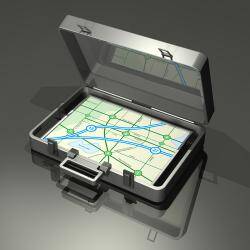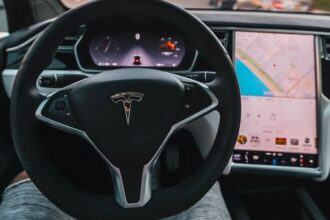 When thinking about telematics, it’s easy to conjure up images of fleet tracking via GPS, satellite navigation systems for driving directions, or even the ubiquitous onboard security and diagnostic systems. However, what’s less understood is that data on your driving habits, locations and more are being collected, sometimes without your explicit knowledge.
When thinking about telematics, it’s easy to conjure up images of fleet tracking via GPS, satellite navigation systems for driving directions, or even the ubiquitous onboard security and diagnostic systems. However, what’s less understood is that data on your driving habits, locations and more are being collected, sometimes without your explicit knowledge.
 When thinking about telematics, it’s easy to conjure up images of fleet tracking via GPS, satellite navigation systems for driving directions, or even the ubiquitous onboard security and diagnostic systems. However, what’s less understood is that data on your driving habits, locations and more are being collected, sometimes without your explicit knowledge.
When thinking about telematics, it’s easy to conjure up images of fleet tracking via GPS, satellite navigation systems for driving directions, or even the ubiquitous onboard security and diagnostic systems. However, what’s less understood is that data on your driving habits, locations and more are being collected, sometimes without your explicit knowledge.
Most people don’t realize that driving data are being collected in 80% of the cars sold in the United States. According to an Economist article, event data recorders (EDRs) are installed in most cars to analyze how airbags are deployed. Some EDRs can also record events such as “forward and sideway acceleration and deceleration, vehicle speed, engine speed and steering inputs.”
The Economist article also says EDR data can show if a driver stepped on the gas just before an accident, or how quickly brakes were applied. And EDRs can also record whether seat belts were locked. These data can be used to augment a police crash report, corroborate accident events as remembered by a driver, or even be used against a driver when negligence is suspected.
This brings to mind a key question – who owns this data? The Economist article says that if you are the car owner, it’s probably you. However, if your car is totaled from a crash, and you sell it to the insurance company as part of a claim resolution process, then it’s likely your insurance company now owns the data.
Data can be used for purposes advantageous and disadvantageous to a driver.
An MIT Technology Review article cites how a new $70 device is now available to hook into your car’s EDR. This device wirelessly transmits data via Bluetooth to your mobile phone on your driving efficiency, cost of your daily commute, and information on possible engine issues. And the company providing the device can deliver a “score” for your driving habits, gas savings and safety in relation to other drivers.
Driving data can also be collected for things you did not intend. For example, a team of scientists used mobile phone location data gleaned from wireless networks to detect commute patterns from more than 1 million users over three weeks in the San Francisco Bay Area.
These scientists discovered “cancelling some car trips from strategically located neighborhoods could drastically reduce gridlock and traffic jams.” In other words, some neighborhoods are responsible for a fair portion of Bay Area freeway congestion. The scientists claimed by cancelling just 1% of trips from these neighborhoods, congestion for everyone else could be reduced by 14%.
Of course, drivers in urban areas could be incentivized to use public transportation, carpool or telecommute, but it’s also possible that a more heavy-handed government approach could restrict commutes from these neighborhoods—on certain days—“for the good of all.”
Data are of course, benign. However, driving data from GPS and other devices are collected daily—and sometimes without your consent.
Altruistically, these data may ultimately be used to design better cars, better freeways and improve the overall quality of life for everyone concerned. Yet, it’s also important to realize that mobile data from daily road travels can also be utilized for tracking purposes, to pin down exactly where you are located at any given moment in time, and how you arrived. And that thought should give everyone pause.









